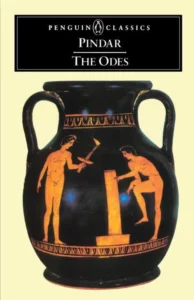Greek Epic Fragments
Notes:
In reading the Iliad for the first time in 2023, I was shocked that the kidnapping of Helen, the Trojan Horse, and the killing of Achilles were not a part of the epic. Those stories are contained in the Cypria (the story before the Iliad) and in the Little Iliad and The Sack of Ilion. I came across these titles in the companion guide to the Iliad and decided to add these fragments as an ancillary book to the Iliad.My Thoughts
This was amazing. The Iliad and the Odyssey are part of an Epic Cycle containing 8 works. Six of them are lost and so we are left with the Iliad and Odyssey as the two remaining works. However, the two big epics along with a variety of other writings refer to the lost works. They can therefore be pieced together and that’s what this book containing fragments seeks to do.
Here are the 8 total works of the cycle:
- Cypria – events prior to the Iliad (kidnapping of Helen, gathering of Greek troops for battle, attack of towns surrounding Troy)
- Iliad
- Aethiopis (death of Achilles)
- Little Iliad (Trojan Horse)
- Sack of Troy (destruction of Troy)
- The Returns (return home of the Greeks)
- Odyssey
- Telegony (further travels of Odysseus, killing of Odysseus by son Telegonus)
This book presents the highlights for each of the 6 lost works and then mentions references from other works of the time (from Pindar, Apollodorus, Euripides, and many others). I was absolutely shocked to learn that the Cypria deals with “the will of Zeus,” which is one of two key phrases in the first paragraph of the Iliad (along with the wrath of Achilles). According to the Cypria, the will of Zeus refers to an actual plan by Zeus to eliminate vast numbers of people from the earth through the use of two wars – Theban & Trojan wars. This sheds an entirely new light on how I read and understood the Iliad and Zeus’ will in the ensuing events.



